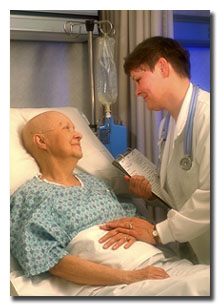The first is that patients do not understand them, the second is that other professionals do
understand them, and lastly medical jargon can be used humorously to deal with the strains
faced by medical professionals.
Growing evidence suggests the majority of people that visit a medical professional want to be
fully informed about their health and whether the news is good or bad. A clear understanding of
their situation can improve a patient's treatment and recovery, therefore it is crucial that medical
professionals avoid ambiguous language or medical jargon in consultations.
A lack of understanding breeds confusion and fear and can lead to serious complications.
For example: The professional outlines a course of action for a patients, recovery, the patient
does not fully understand and then does not comply ending up in a more serious situation than
when they started.
Section E-8.12 of the American Medical Association's Current Opinion on the Code of Medical Ethics, states the following:
It is a fundamental ethical requirement that a physician should at all times deal honestly and openly with patients. Patients have a right to know their past and present medical
status and to be free of any mistaken beliefs concerning their conditions. Situations occasionally occur in which a patient suffers significant medical complications that may have
resulted from the physician's mistake or judgment. In these situations, the physician is ethically required to inform the patient of all the facts necessary to ensure understanding of
what has occurred. Concern regarding legal liability which might result following truthful disclosure should not affect the physician's honesty with a patient.(1994)
When professionals use medical jargon between themselves it can expediate treatment in an emergency situation, such as if a motor vehicle accident victim is brought into a casualty department. The use of medical jargon or shorthand can save time as tests and treatment is not drawn out by long winded explanations and vocabulary. It is kept short and understood by all.
Using the accident victim as an example, we can see the value of jargon in saving time. As the victim arrives at a busy casualty department by ambulance the officers explain to the nurses and doctors that they have, a male MVA,23 , peter piper, passenger, wearing belt, LOC, suspected TIB FIB fracture, suspected internal bleeding, complaining of chest pains.
The staff would then know that the male victim was in a Motor Vehicle Accident, he was in the passenger seat, wearing a seatbelt, had a Loss Of Concesnous and a suspected break of Tibular or Fibular (leg bones).
With this information the medical emergency staff would then go about treatment with the doctor ordering FBC, UEC, CXR, AXR, LXR. This would mean the patient would receive a Full Blood Count, Urea Electrolytes Creatnin test, Chest X Ray, Abdominal X Ray and Leg X Ray.
Time can be saved by the use of jargon on patients charts for example, by using such terms as: WNL (Within Normal Limits), WWI (Walking While Intoxicated and fell over), WADAO (Weak And Dizzy All Over) or TATT ( Tired All The Time). By using shorthand such as these time is saved and the professional can move on to treating the patient rather than filling out charts and forms with long winded explanations.
Being a medical professional is a demanding and distressing career. Professionals deal with death and pain every day and they have to try to find a balance between their work and private life. Most professionals use humour as a buffer against the horrors of their work. Whilst to outsiders their humour can be seen to be morbid and tasteless, it is never used in front of patients and is a coping mechanism for the professionals.
Below are some examples of humorous jargon used:
AGA - Acute Gravity Attack (fell over).
AHF - Acute Hissy Fit.
ALS - Absolute Loss of Sanity (nutcase).
ART - Assuming Room Temperature (dead).
Assmosis - promotion by "kissing ass".
Aunt Minnie Lesion - once seen, never forgotten, much like certain aunts at the family wedding.
Bordeaux - bloodstained urine.
Chandelier's Sign - The result of any test or probing after which the patient must be removed from the chandelier.
CKS - cute kid syndrome.
Departure lounge - geriatric ward.
Digging for Worms - varicose vein surgery.
DIIK - Darned if I know.
Discharged downstairs - transferred to the morgue.
Eating In - Intravenous feeding.
ECU - Eternal Care Unit: heaven ("gone to the ECU = dead).
TDS - Terminal deceleration syndrome (e.g. RTA death, high-rise syndrome, jump-suicides and parachute-failed-to-open).
TEETH - Tried Everything Else, Try Homeopathy.
Toaster - defibrillator.
UBI - Unexplained Beer Injury.
Velcro - Family or friends accompanying patient everywhere.
A medical professional must find a balance between using jargon with other professionals and speaking a clear and definable language to patients. While holding a patients fears and expectations in their hand they also must find a way to deal with the stress of the careers. It is a hard balance and one that most medical professionals do everyday with skill and compassion.




